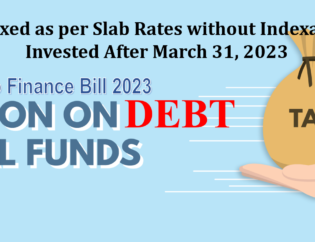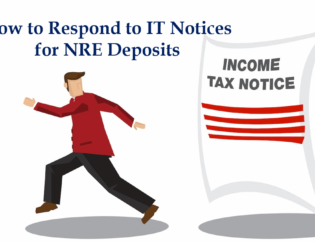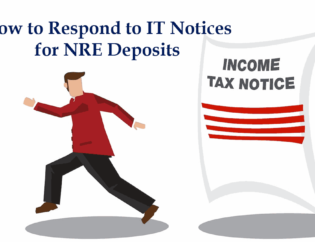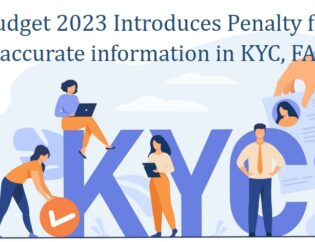Two changes are aimed at attracting foreign exchange from NRIs in long term NRE or FCNR bank deposits and other three are related to preserving the foreign exchange by restricting access of foreign exchange to residents.
As a result of these changes, NRIs stand to get higher TAX FREE interest on NRE and FCNR deposits of 3 years and above, even higher than resident Indians. For NRIs, this offer a unique opportunity to transfer more foreign currency at historically higher foreign exchange rates – Rs. 61 / USD, Rs. 96 / GBP etc and earn higher interest.
All 5 changes are explained and analyzed as follows:
1. Deregulation of Interest Rates on Non-Resident External (NRE) Deposits:
While RBI deregulated the interest on NRE deposits on December 16, 2011, there was a condition that the interest rate on NRE FDs cannot be higher than those offered by them (banks) on comparable domestic rupee deposits.
However, on August 14, 2013, RBI gave freedom to the banks to offer interest rates on NRE deposits with maturity of 3 years and above without any ceiling.
It means that NRE FD rates for deposits of 3 or more years CAN BE HIGHER than the Rupee deposits given to residents. This is applicable to NRE deposits only. The extant ceiling on NRO Accounts shall continue and interest rate on NRO deposits cannot be higher than those offered by banks on comparable domestic rupee deposits.
It is Important to note that the deregulation of NRE deposits will be valid up to November 30, 2013 only, subject to review.
2. Interest Rates on FCNR(B) Deposits:
Interest rates on Foreign Currency Non Resident (FCNR) Deposits on various currencies for maturity of 3-5 years are increased by 1%. The revised ceiling on FCNR deposits are as under:
| Period | Existing | Revised |
| 1 – 3 years | LIBOR/Swap+200 bps (2%) | No change |
| 3 – 5 years | LIBOR/Swap+300 bps (3%) | LIBOR/SWAP+400 bps (4%) |
It is Important to note that the increased limit on FCNR deposits will also be valid up to November 30, 2013 only, subject to review.
3. Limit on Liberalized Remittance Scheme (LRS) for Resident Individuals Reduced to USD 75,000:
Resident Individual was allowed to remit upto USD 200,000 per financial year (April – March) outside India for any permitted purposes. RBI reduced the limit of USD 200,000 per financial year to USD 75,000 per financial year with immediate effect. As a result, remittances of up to USD 75,000 can only be made for any permitted current or capital account transaction or a combination of both per year.
Accordingly, the limit of Gift or Loan to NRI close relatives by resident individuals is also reduced to USD 75,000 per financial year. So now, resident individuals can only give gift upto USD 75,000 to their NRI close relatives.
Within this limit, resident individuals are allowed to set up Joint Ventures or Wholly Owned Subsidiaries for bonafide business activities outside India. It was also mentioned that the scheme should not be used for making remittances for any prohibited or illegal activities such as margin trading, lottery etc.
4. Restriction on Acquisition of Immovable Property Abroad by Residents
In addition to reducing the limit under LRS, RBI has restricted the acquisition of immovable property, directly or indirectly, outside India by resident individuals. No remittances can be made under the Liberalized Remittance Scheme (LRS) Scheme for acquisition of immovable property outside India.
5. Reduction of limit for Overseas Direct Investment (ODI) to 100% of Net Worth
An Indian party was allowed to invest in Joint Ventures (JV) or Wholly Owned Subsidiaries (WOS) as Overseas Direct Investment for any bonafide business activity upto 400% of the net worth of the Indian Party as on the date of the last audited balance sheet under the Automatic Route.
The limit was reduced from 400% to 100% of the net worth of the Indian Party under the Automatic Route as on the date of the last audited balance sheet. And, any ODI in excess of 100% of the net worth shall be considered under the Approval Route by the Reserve Bank of India.









This is really informative. I have a question – given the conversion rate right now, would you advise taking an equity line of credit in US and using that money to invest in Indian NRE FD for one year? Not a big fan on 1 year + FD. Obviously the interest rate offered on NRE FD is very attractive compared to interest that I would pay for Equity line of credit. What are the other things (tax rate on interest earned payable in US, ease of repatriation etc) that one need to consider?
I am not a savvy investor but with all the buzz that I am hearing, I am curios and tempted to go down this path. Really appreciate your insights.
Cheers!
It all depends on the rate of interest on line of credit in USA, interest on NRE FD, amount of deposit, your marginal tax rate in USA, forward INR/USD rate, etc.
Sir,,
please advice 2 years back only I got my NRE funds transfer to NRO since then interest rate was much less as compare to NRE interest but later it was revised and at the same time I am liable to pay tax kindly advise if I can transfer NRO Fixed deposits to NRE deposits.
regards
RBI has allowed transfer of funds from NRO to NRE. Please check my other blogs on this subject and whether transfer, why transfer and how to transfer. Thanks.
Hi:
Vinod asked a question that is pertinent to all NRI- Should I invest in a higher interest earning NRE (9%) while borrowing in US (4%) – delta of 5%?
Without looking at any calculation , I would do not invest in India because inflation
(US-3%, India-8%) – delta of 5% eats away that gain in interest. I have not included exchange and differential income tax impact for a simpler assessment.
However, for detailed assessment, does any one have a worksheet that captures inflation, income tax, exchange effects?
Thanks
vj
My view would be, Inflation matters only if you are living in India. If you are living in the USA, inflation in India does not affect your real return. So you would only consider the nominal return. However, as you would be investing in INR, foreign exchange, and currency depreciation would be important.
Comparing 1.5% in USA for 5 year FD with 5.5% FD rate is due to the credit risk of India. If you think India won’t default in 5 years, you should invest in FCNR. Also, the NRE FD (in INR) of same maturity gives you about 9.5% return. Here, depreciation of INR comes into picture. The rate assumes that INR will depreciate @ 4% annually. If you think that INR will appreciate or will depreciate less than 4% per year, invest in NRE FD (INR) and if you think INR will depreciate more than 4%, invest in FCNR FD (USD).
I request a clarification on the taxability of the interest on NRE deposit post return to India under the following situation:
I am planning to return to India after 11 years of stay in Middle east but I have no intention of taking employment or doing business or profession. I will be staying for more than 182 days at singapore and US with my daughter under visit visa. I have no intention to stay in India for a uncertain period. But from AY 2016-17 I would be staying for more than 60 days india and in the last four years preceding the AY 16-17 I would have stayed for 365 days plus in India. Technically I may become a resident in India. My reading of Section 10(4) provides exemption on Interest income from NRE deposit based on the definition of person resident outside India under FEMA and Under FEMA I may be technically a person resident out side India. Whether the Interest income from NRE deposit would still be exempted. Your advise would be very much appreciated.
Thanks
1. NRI investment is governed by FEMA and NRI taxation is governed by the Income Tax act.
2. Whether you are allowed to hold/invest in NRE FD, you have to refer the definition of “Resident” per FEMA. If you have no intention to settle in the India for uncertain period, you are not resident under FEMA and as a non-resident under FEMA, you are allowed to invest in NRE FD.
3. As per income tax act, interest on NRE accounts owned/invested under FEMA rules is exempt from Income Tax in India.
In your case, based on the limited information, I am of the opinion that the NRE interest would be exempt from Income tax, provided you are a non-resident under FEMA. Thanks.
I would appreciate if you would tell me in detail how to
transfer funds from nro account to nre account Thanks please provide your contact info too.
Please search on the blog for “NRO to NRE transfer” category and read blogs and comments to know. The contact information is in “Contact Us”. Thanks.
Can you please help me understand if married sister, not financially dependent on me for living will be considered close relative for the purpose of tax-free gifts upto 5Lac INR limit?
Brother-sister are close relatives. It does not matter whether she is married or whether she is financial dependent. Also, there is no limit of gift as per Indian laws. Thanks.
My parents in India want to gift me some money. Can they deposit this money directly into my NRO/NRE account? Also what is the requirement (certificates, etc) and limit for such gifts?
A resident can give upto $250,000 per year to his/her close relative (siblings, parents and kids) every year. So in your case your father can gift $250k and your mother can give gift of $250k. If first gift can be completed in March, (before march 31 i.e. year end), they may give same amount in April too as the limit is per financial year. Thanks. You can deposit the money directly to NRO account. If you want the money in your foreign bank account or NRE, CA certificate may be required. Thanks.
kindly let me know whether I can gift a Carpet to my son on his birthday. The cost of carpet may be around Rs.25000/- whether I can carry along with my luggage. If so, any custom duty is payable? kindly clarify whether there is any exemption. the limit available etc.,
regards
shashidhar
1. Yes. you can gift the carpet to your son.
2. I am not sure of the custom duty as it will apply based on the country you fly to. However, I don’t think there would be any but please check the custom duty of the country where your your son reside.
How do regulators (Sebi, Rbi and Income Tax Authorities) exempt tax on gifts?
(Is it through a notification, rule, statutory act, etc.?)
SEBI regulates securities market, RBI regulates forex, money and transactions with NRIs and Income Tax regulates taxation. The Gift tax was abolished in India. However, it is now included in the Income Tax Act. So for taxability of any gift (transfer of money or asset without adequate consideration), you would only refer provisions of Income Tax act. Thanks.